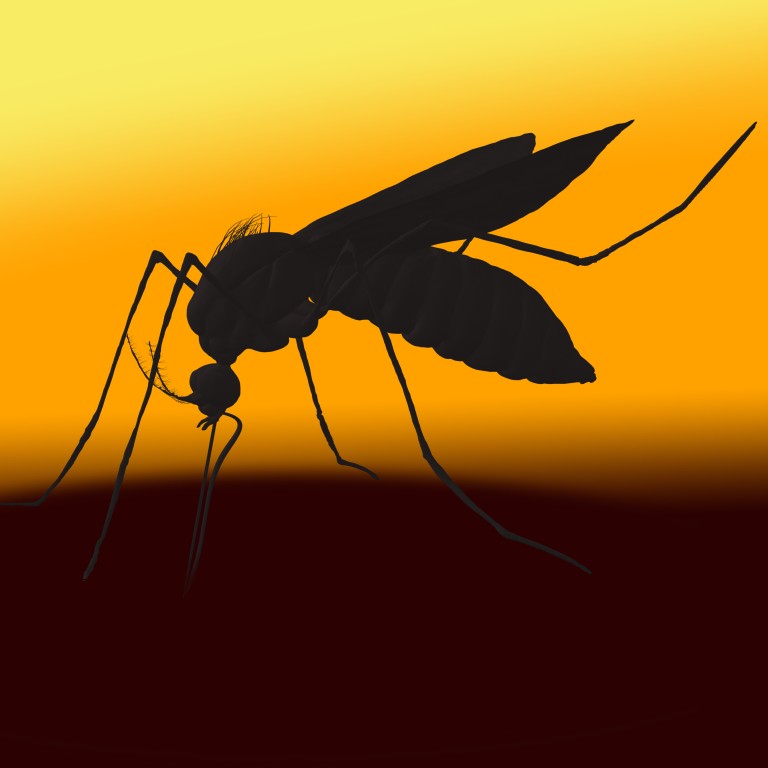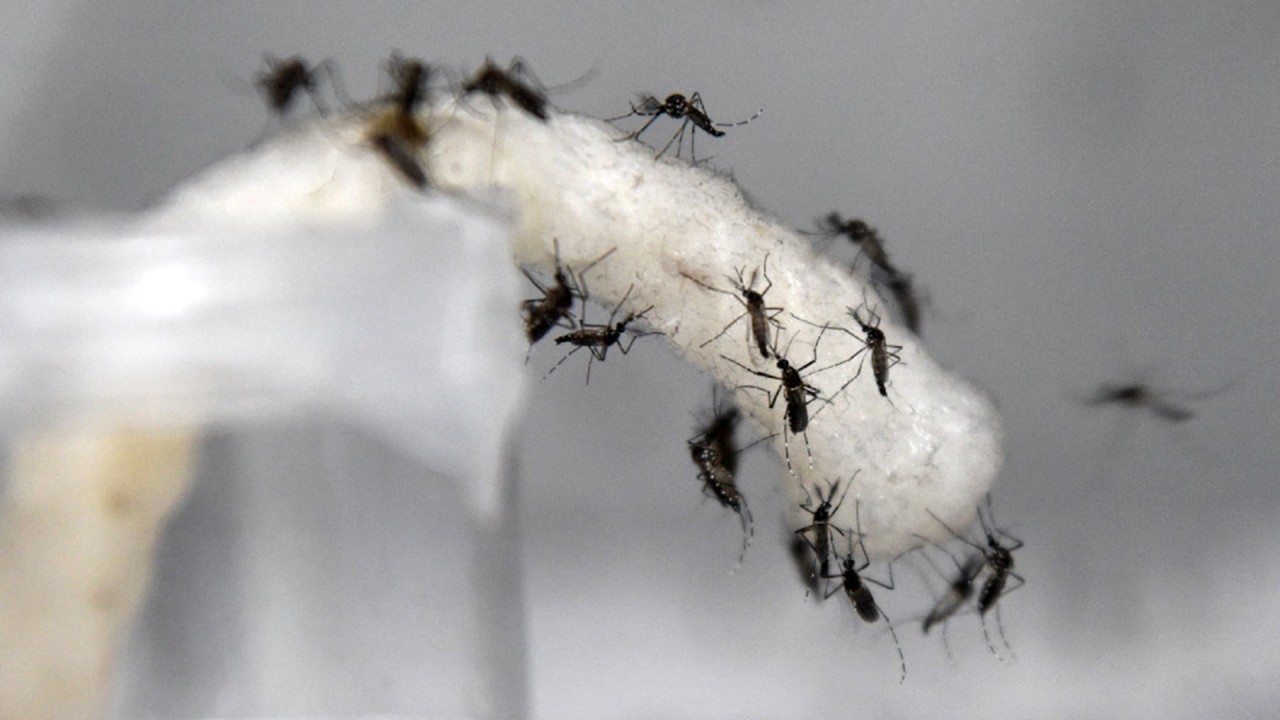
Chinese scientists unlock mosquito mystery in scent study that could aid control of dengue and Zika
- Findings open the door to a new strategy using vitamin supplements to control mosquito-vectored diseases
- Chemical analysis of infected mice and humans identified a molecule, called acetophenone, that mosquitoes found particularly attractive
The finding, published on Cell online journal on Thursday, opened the door to a new strategy for controlling mosquito-vectored diseases with a vitamin supplement to interrupt the process and potentially reduce the risk of infecting others with the virus.
Dengue virus, which causes fever, rash and sometimes death, is spread by mosquitoes in tropical areas, and more than 50 million cases occur each year.
Zika virus can cause brain or nervous system complications and birth defects when a pregnant woman is infected. In a tropical climate, the disease is spread by mosquitoes which bite the infected host animals, get infected themselves and pass the virus on through future bites.
It was already known that some diseases change the host’s odour, making it attractive to mosquitoes. A group of researchers from Tsinghua University, the Institute of Infectious Diseases in Shenzhen and the Ruili Hospital of Chinese Medicine, started their groundbreaking research by examining whether this also applied to dengue and Zika viruses.
“Mosquitoes rely on their sense of smell to detect hosts and guide fundamental behaviours of survival. At the beginning of this study, we found that the mosquitoes preferred to seek and feed on dengue- and Zika-infected mice,” said study lead scientist Cheng Gong, of Tsinghua University’s School of Medicine.
Chinese scientists find way to eradicate deadly mosquitoes
Through tests, they found mosquitoes were more attracted to dengue and Zika-infected mice than healthy mice. They went on to investigate the cause of this attraction.
Chemical analysis of infected mice and humans identified a molecule, called acetophenone, that mosquitoes found particularly attractive.
Acetophenone is made by some Bacillus bacteria that grows on the skin of humans and mice. Normally, the skin produces enough levels of a key protein, RELMa, that regulates the composition of the skin microbiome. However, after being infected with the Zika or dengue virus, the host cannot produce enough of the protein and acetophenone becomes abundant, researchers have found.
Cheng said flaviviruses such as dengue and Zika could use the boost in acetophenone to aid its life cycle more effectively, “by making their hosts more attractive to mosquito vectors”.
To confirm that the acetophenone was indeed playing the key role in attracting mosquitoes, researchers applied the molecule to clean mice and to the hands of human volunteers and showed that the acetophenone was a potent attraction for mosquitoes.
They also used both hands of a volunteer – one palm with the armpit odorant blend from dengue fever patients and the other from healthy patients free of the disease – to compare. Over 30 minutes the volunteer’s hands were placed into two glass chambers. The hand with volatile extracts from dengue patients was more attractive to mosquitoes than the hand with extracts from healthy donors.
The protein that regulates the acetophenone-producing bacteria can be induced with vitamin A derivatives. Giving infected mice vitamin A, which is commonly used to treat skin conditions, lowered the amount of acetophenone produced by the mice, the researchers found.
A gnat’s history: how the mosquito got its name
The study findings show potential for a new way to control the spread of mosquito-borne diseases such as dengue fever and Zika.
Cheng said his team planned to apply their research in the real world by giving isotretinoin, a type of vitamin A derivative, to dengue patients in Malaysia.



